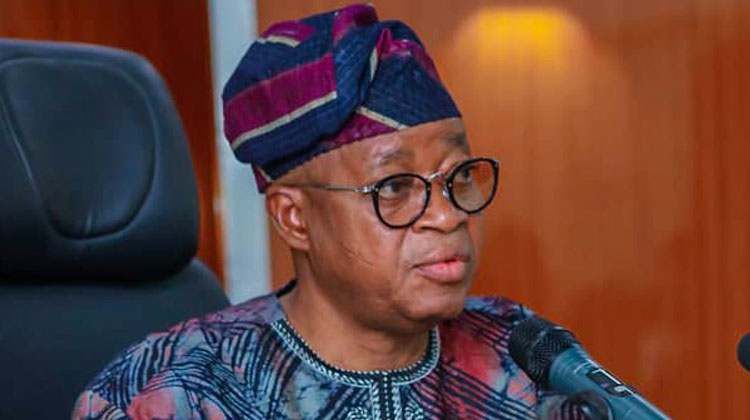Adegboyega Oyetola, the Minister of Marine and Blue Economy, has underscored his commitment to the comprehensive implementation of Nigeria’s newly approved National Policy on Marine and Blue Economy. He emphasized the importance of this policy as a strategic framework for the long-term transformation of the sector, aligning it with the nation’s Renewed Hope Agenda, which prioritizes economic growth. Oyetola’s call to action extends to senior officials and agency heads within the ministry, urging them towards effective leadership, inter-agency collaboration, and measurable performance outcomes. He emphasized that the recent retreat was not merely a routine exercise but a crucial opportunity to evaluate the sector’s direction and reposition it for impactful delivery, in line with national expectations.
The Minister highlighted several significant achievements already underway, including the modernization of port infrastructure, improvements in port efficiency and maritime security, the development of aquaculture and fisheries, and the commencement of the Cabotage Vessel Financing Fund disbursement process. He stressed the importance of translating the policy’s strategic priorities into actionable programs, emphasizing disciplined execution underpinned by coordination, technology adoption, transparency, environmental stewardship, and institutional accountability. Furthermore, he stressed the significance of the performance bonds signed during the retreat, urging officials to view them not as symbolic gestures but as serious commitments to deliver tangible, time-bound results.
Oyetola elaborated on the core focus areas of the policy implementation. He emphasized the need to leverage the policy’s framework to drive economic growth, generate employment opportunities, enhance port throughput, improve regulatory compliance, and boost revenue mobilization within the marine and blue economy sector. This comprehensive approach aims to maximize the sector’s contribution to the national economy and establish Nigeria as a prominent player in the global maritime landscape. The Minister reiterated the importance of aligning all activities with the policy’s objectives to ensure a unified and focused approach towards achieving the set goals.
The Minister’s call for effective leadership and inter-agency collaboration emphasizes the importance of a cohesive and coordinated approach within the Ministry and its agencies. He called for a shift away from siloed operations towards a more integrated approach where agencies work together seamlessly, sharing resources and expertise to maximize the impact of their efforts. This collaborative spirit is seen as crucial to achieving the ambitious goals set out in the policy and ensuring its successful implementation across the sector. Oyetola stressed the need for leaders within the ministry to adopt a performance-driven mindset, focusing on delivering tangible outcomes that contribute to the overall growth and development of the sector.
Another key aspect of the Minister’s message is the emphasis on technology adoption and transparency. He stressed the need to leverage technology to improve efficiency, enhance security, and promote data-driven decision-making within the marine and blue economy sector. Transparency, he argued, is essential for building trust, ensuring accountability, and fostering a conducive environment for investment and growth. By embracing technology and promoting transparency, Nigeria can position itself as a leader in the sustainable development of its marine and blue economy resources. This approach will not only contribute to the long-term economic prosperity of the nation but also enhance its reputation within the global maritime community.
Finally, Oyetola underscored the importance of environmental stewardship and institutional accountability in the implementation of the National Policy on Marine and Blue Economy. He emphasized the need for sustainable practices that protect and preserve the marine environment for future generations. Institutional accountability, he argued, is crucial for ensuring that resources are utilized efficiently and effectively, and that all stakeholders are held responsible for their actions. He stressed the importance of Nigeria’s bid for a Category C seat on the International Maritime Organisation Council, calling it a strategic national objective. Oyetola urged the ministry to spearhead diplomatic efforts, and encouraged all agencies to actively contribute to enhancing Nigeria’s international maritime standing. By prioritizing environmental stewardship and institutional accountability, Nigeria can ensure the long-term sustainability of its marine and blue economy, creating a prosperous and resilient sector that contributes to the nation’s overall development.














